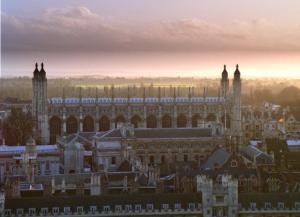 The biography of the conference’s last session speaker, Greg Thornbury:
The biography of the conference’s last session speaker, Greg Thornbury:
“Gregory Alan Thornbury, PhD is the founding Dean of the School of Christian Studies at Union University, where he teaches philosophy and theology. Since 2002, He has served as Senior Fellow for The Kairos Journal (New York), an online research tool designed to help pastors and church leaders engage public square issues. The editor of two volumes and the author of numerous essays, his work has appeared in The American Spectator, Breakpoint Magazine, and other publications. In addition to his work at Union University, he has become a popular campus lecturer and conference speaker on the intersection between theology and culture.”
The following are the remarks of Greg Thornbury from his talk “Mugged by the Enlightenment: The Prospects for  Natural Law & Christian Witness in a ‘Show-Don’t-Tell’ World.”
Natural Law & Christian Witness in a ‘Show-Don’t-Tell’ World.”
Irving Kristol memorably said, a neoconservative is “a liberal who has been mugged by reality.” According to Thornbury, a young evangelical today is one who has been mugged by the ugly idea that their beliefs make them a social leper.
Are fewer and fewer people listening to evangelicals today, we wonder? If, as I will argue, people are irrepressibly religious beings, why is secularism advancing so rapidly in Europe and now America? I will attempt to trace this out. If some of this sounds like a mea culpa, then that is certainly intentional. If the Christian community is indeed interested in a future for “making men moral.” then perhaps it is appropriate to begin not with an apologetic, but with the words “I’m sorry.”
Having noted the foibles and subsequent decline of Western institutional religion, I move on to discuss the persistence of transcendence and the reality that secularism fails to offer a better solution for cultural flourishing. Finally, I want to look at two key ideas: reason and revelation, and ask if there is hope for rapprochement between natural law and theologies of revelation when it comes to the project of re-introducing the Christian witness to the Western world?
In 1887, Friedrich Nietzsche inscribed in his notebook that “God is much too extreme hypothesis.” Depsite earnest attempts to do away with it in modern times, however, it seems clear that religion cannot and will not go away. Faith shapes culture. It is simply a matter of which belief system a society chooses and how effective that faith is at nourishing the animating impulses of a people. Which religious expression/identity will capture the minds of this generation? Goethe put it well: “The destiny of any nation at any given time depends on the opinions of its young men under twenty-five.”
Wars of Religion: Public Damage to Christian Credibility
Secularism becomes plausible in light of certain events in 17th and 18th-century Europe. The first event is Savanarola’s attempt to purify the church in 15th-century Florence. Despite his best efforts, he was condemned by Rome and eventually burned at the stake. Niccolo Machiavelli took note of this and concluded that what mattered for the supposedly religious prince was not religious zeal but the power to enforce one’s will on others. Those who have followed Machiavelli have concluded one of two things about the Church: it is either corrupt or moralistic.
The 16th and 17th centuries did little to help this situation. The French Wars of Religion (1562-1598), with such awful events as the St. Bartholomew’s Day massacre, still live on in infamy. It seemed clear in this age that religion was inextricably connected with violence, a claim that is hard to shake. Martin Luther also did not help the situation much. With his “two kingdoms” model, Luther sowed the seeds for the demise of religion’s role as a source of cultural authority. Certainly Luther could not have imagined a Germany in which the princes would no longer take stock of their religious heritage. On the heels of the Reformation, the Thirty Years War (1618-1648) further besmirched the reputation of religion’s involvement in matters of the state.
The Plausibility of Secularism
The wars of religion had a deep influence on leading European thinkers. Voltaire cried, “Crush religious superstition!” And when Kant declare, “Sapere aude,” or, have courage to use your own reason (the Enlightenment’s motto), we can see the impetus behind this declaration of cultural independence from the dictates of the clergy and the theologians.
In the English-speaking world, no philosopher levied a more trenchant critique of theology’s role in forming government than Thomas Hobbes. The author of Leviathan sought to remove political questions from the arena of theological debates, and turned them into a science of common sense and natural justice. The 20th-century did not realize the inflated dreams of the Enlightenment thinkers like Hobbes and Voltaire. The First and Second World Wars, Mao’s Revolution, Stalin’s slaughter of innocents, and the killing fields of Cambodia wrought horrors of proportions never previously seen. In the place of a literal hell to punish those who did evil in this life when they die, George Steiner observed in 1970, modern ideologies had instead relocated hell above ground. The problem, then, seemed not to be religious ideas about man, but man himself.
Certitude, resultingly, is in short supply today. As a result of these disillusioning events, many people today buy fully into the postmodern project to subvert, resist and undermine ideologies that oppress groups who live on the boundaries of culture. And yet nihilism seems scarce today. Thornbury heard an NPR interview with David Bowie some time ago in which Bowie confessed that his music had become more hopeful and transcendent with the birth and growth of his child. Despite this kind of thinking, prevalent today, a more substantive response is necessary to best handle the renewed cultural interest in transcendence.
Hope for Rapprochement Between Natural Law and Theologies of Revelation
I have been something of a skeptic when it comes to the persuasive power of natural law in matters related to public square issues. I was profoundly influenced by theologian Carl F. H. Henry, who had little truck with natural law theory. He mentored me and exercised a profound influence on my thinking, for he had a staunchly revelation-centric epistemology. Others in recent days have also questioned the efficacy of natural law in questions of morality that don’t get into theology and revelation. Straussians, for example, doubt the potential of the natural law approach to solving matters like the marriage debate. The consense on natural law seems to have weakened some.
Sometimes, Jedi mind tricks work, as in Episode Four with the storm troopers. Sometimes, however, you run into Jabba the Hut. Stephen Pinker is Jabba the Hut (showed a picture of Pinker, much laughter). Quoted Pinker at length, noting that his assessment was neither right or insightful, but proceeds from a strong sense of gamesmanship. Try as you might to persuade an audience that your position on human dignity is derived purely from natural law, Pinker claims, as long as bear the stigmata of being a Christian, you might as well go ahead and cite Scripture passages in support of your position. We’re going to fall prey to guilt by association one way or the other.
Also, people often embrace truth through their passions, their pre-theoretical faith commitments, not always through the exercise of reason. Michael Polanyi has pointed this out.
Despite these concerns, all hands are needed on deck. These concerns about natural law are being addressed. Example: John Wilson-Michael Novak exchange in Books and Culture over Novak’s No One Sees God. On the one hand, Wilson notes, Novak forcefully counters the New Atheism by use of the rational proofs for God’s existence. On the other hand, Wilson notes that both the atheist and the believer must live in darkness. At first, Thornbury thought Wilson had Novak in a bind. However, Novak countered in National Review that in the world of the heart, there is a “dark knowledge of “the cloud of unknowing.” The heart has its reasons that reason cannot comprehend.
Thornbury also read J. Budziszewski published his essay “Natural Law Revealed” in Firs Things, where the professor spoke eloquently of the ways in which the book of revelation affirms and narrates the mirror of nature. This resonated. Nothing could restore the fortunes of historic Christianity more in postmodern times than a unified thesis of public reasons for traditional morality complemented by an authentic recognition that there is an existential dimension for why people disagree with our views on marriage, abortion, and other related life issues.
Hope for the Church After the Crisis of Faith in Institutional Religion
The church’s failure to resist the Nazis weakened its cultural position, and understandably so. It was not the Protestants but the Catholic German territories that protested against the Nazis, while many German Christians of other groups welcomed the Fuhrer with open arms. Quoted Bonhoeffer at length to make the point that he believed that the church from this point forward would need not to seek great things for itself, but rather needed to seek the welfare of the actual communities in which churches find themselves. Therefore, everyone should see that the church is there, for them and for their children. We need this kind of Bonhoeffer-like witness. It is not quietism–Bonhoeffer protested all the way to the gallows. He called on fellow Christians to be prophetic. But he realized that the church’s structures of power had failed in the Second World War. The prophetic tradition must be strong, as it had been in protesting slavery, and the excesses of Roman culture, and in many other eras. This must be manifested in a life–it was Christians who stayed behind in times of plagues in centuries past, while the elites and bluebloods fled. This had a powerful effect on the culture.
Conclusion
We pray now that young evangelicals would not be so concerned that the culture does not like us, but that would seek to be “in the city, for the city,” being the moral conscience of the culture.
My Take
Following the talk, Francis Beckwith of Baylor University responded to the talk. Here’s where things started to heat up, as Beckwith responded to Thornbury’s critique of natural law. There wasn’t time for heated debate, but it was clear that much could be said.
I’m not going to get into the natural law-theology of revelation debate here. I don’t have the time or energy right now to do so. I would commend the audio to you for further inquiry into this subject. I will say that I very much appreciated Thornbury’s call for the church to retain its prophetic witness in the culture. I liked very much that he called for young evangelicals especially to not bury their heads in their hands over their loss of cultural influence, but to work very hard to be salt and light in the broader culture. This is surely the right approach to the loss of Christian influence in our society, and in all societies.
Thornbury is a fun speaker with a lively mind, an eloquent pen, and a clear heart for the church. I like very much that he doesn’t join the chorus of commentators who slam Carl Henry, but instead recognizes that he was a tremendously gifted Christian leader who is far less intellectually spotty or unaware than is sometimes claimed. Carl Henry had his faults, as we all do, but he does not deserve to be swept under the rug. He is the most significant evangelical theologian of the 20th-century, and he deserves to be remembered as such and appreciated for it.
We are now heading off to chapel, where Robby George is speaking. Following that, I’ll be blogging the final event of the conference, a lunch at which Hadley Arkes of Amherst College will speak. The conference, just for the record, continues to be intellectually stimulating and very well-executed.















